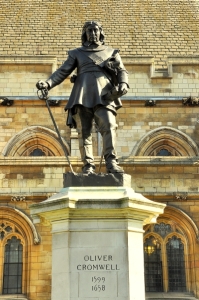The most interesting thing about King Charles I…
I start so many things I write with that line. It is the opening lyric from a Monty Python song:
It serves as a sort of throat-clearing; gets the fingers moving and the brain spinning, so to speak. I’ve yet to accidently leave it in a final draft.
This article has nothing to do with King Charles I. Well, not directly.
I spent the better part of a year living in England when I was 21. It was my Junior Year of college at Juniata. Everyone was encouraged to study abroad back then. I assume they still are.
Back to KC I, or rather his nemesis, Oliver Cromwell spit. (I’ll explain the spitting shortly.)

If you aren’t familar with Ollie C, you should be. You can look him up on Wikipedia if you’d like, or go listen to that Youtube clip I posted. Or I can tell you about him here: Short version, he decided KCI was bad for England, so he chopped off his head and ran the country as Lord Protector until his own death. The British then restored the Monarchy with King Charles II.
Cromwell was a Puritan, the same folks who got lost at sea and landed at Plymouth. Fancy things were verboten. Even buttons were ostentatious. So he and his men set about the country, removing all things decadent and offensive.
While in England, I toured at least a dozen churches, nearly as many castles, and a number of other historic sites. In every case, the tourguide or docent would tell us about the role of their particular building in the Civil War. You could tell they held Cromwell in disdain. No one ever went to go so far as to spit after saying his name, but I came to take it as read.

The University where I was studying was in Lincoln. I remember one room in Lincoln Cathedral where the gold inlay was still intact on a particular coffin. It had been up against a wall when Cromwell’s men came through, prying the gold, jewels, and other filigree from anything in the church. I assume the enthusiasm with which his men removed these valuables had nothing to do with greed and was driven purely by their pious hearts.
That’s my Oliver Cromwell story. Happy Thanksgiving, everybody!